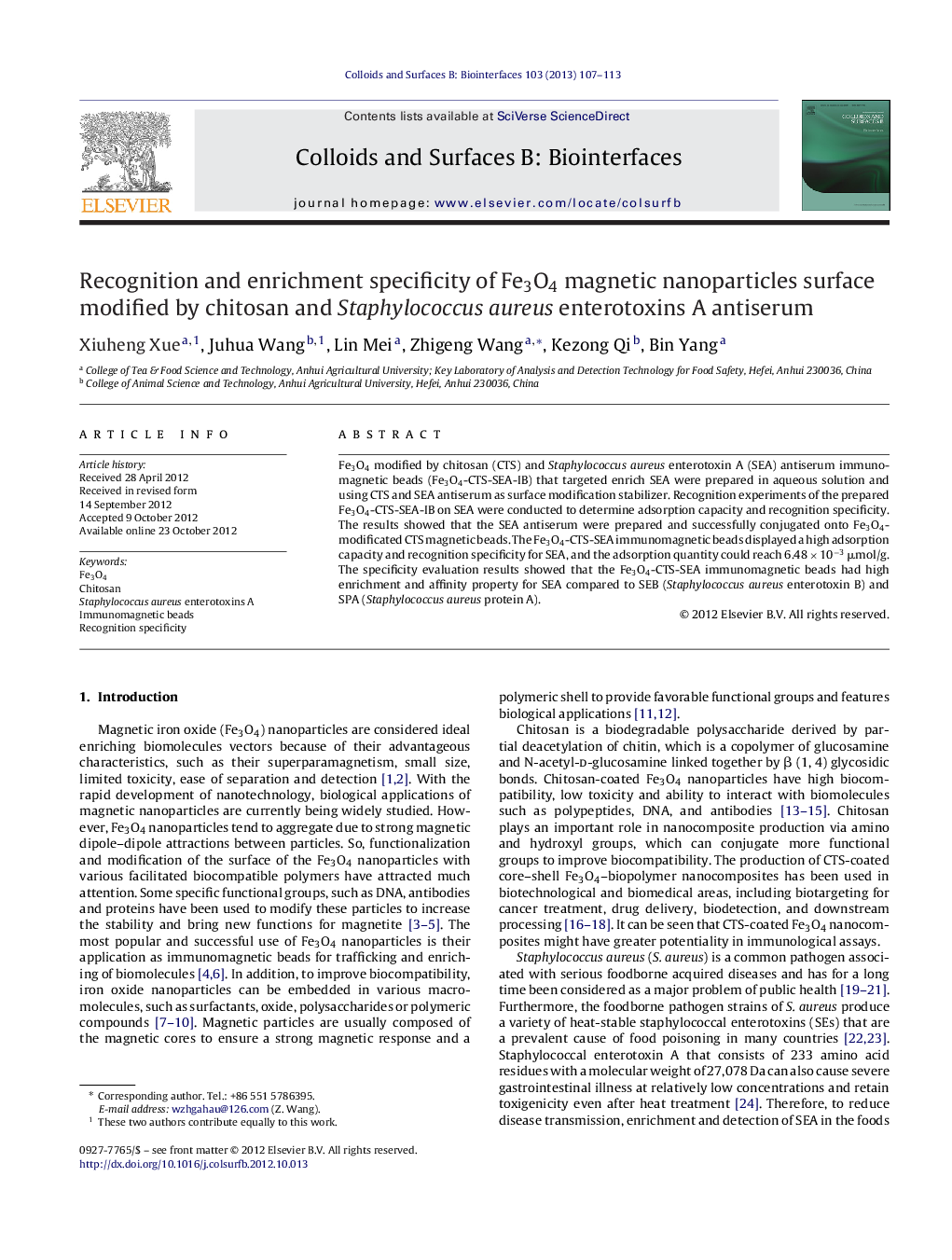| Article ID | Journal | Published Year | Pages | File Type |
|---|---|---|---|---|
| 600336 | Colloids and Surfaces B: Biointerfaces | 2013 | 7 Pages |
Fe3O4 modified by chitosan (CTS) and Staphylococcus aureus enterotoxin A (SEA) antiserum immunomagnetic beads (Fe3O4-CTS-SEA-IB) that targeted enrich SEA were prepared in aqueous solution and using CTS and SEA antiserum as surface modification stabilizer. Recognition experiments of the prepared Fe3O4-CTS-SEA-IB on SEA were conducted to determine adsorption capacity and recognition specificity. The results showed that the SEA antiserum were prepared and successfully conjugated onto Fe3O4-modificated CTS magnetic beads. The Fe3O4-CTS-SEA immunomagnetic beads displayed a high adsorption capacity and recognition specificity for SEA, and the adsorption quantity could reach 6.48 × 10−3 μmol/g. The specificity evaluation results showed that the Fe3O4-CTS-SEA immunomagnetic beads had high enrichment and affinity property for SEA compared to SEB (Staphylococcus aureus enterotoxin B) and SPA (Staphylococcus aureus protein A).
Graphical abstractFigure optionsDownload full-size imageDownload as PowerPoint slideHighlights► Fe3O4 nanoparticles were prepared and modificated with chitosan on the surface. ► Staphylococcus aureus enterotoxin A (SEA) antisera were successfully conjugated onto immunomagnetic beads. ► The Fe3O4-chitosan-SEA immunomagnetic beads displayed a high enrichment and recognition specificity for SEA.
